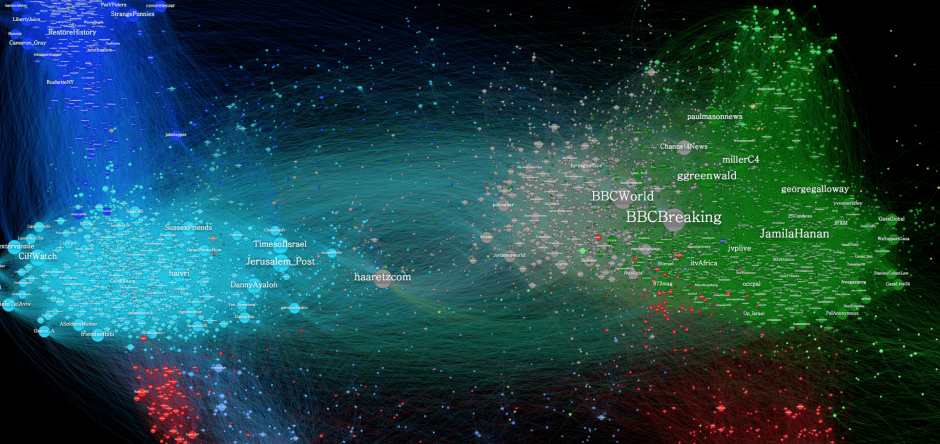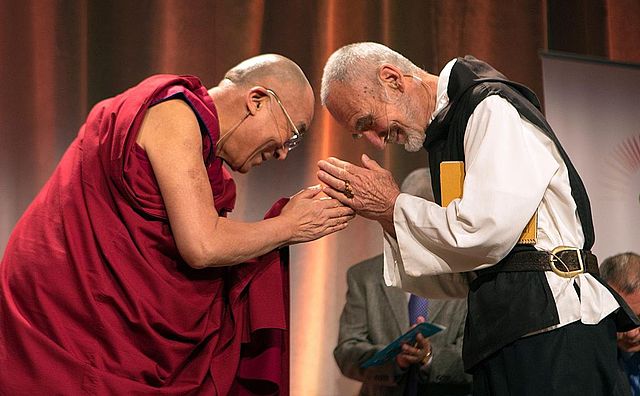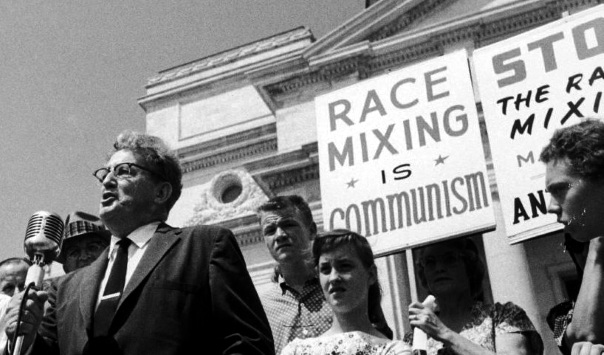This series is about Israel’s policies in Gaza. I think they’re so unconscionable that I can’t believe they’re up for debate even among Jews — and yet they are. Instead of criticising Israel, I invite you to explore the basis and consequences of a pro-Israel’s-policy view. I’m not naive about changing minds but gotta try. This is for you if you: (1) support Israel’s policies in Gaza and the West Bank (2) consider Palestinians and Israelis to be equally human, their lives equally valuable and (3) don’t consider Jews to be a superior race.
Part 1|Part 2|Part 3|Part 4|Part 5|Part 6|Part 7|Part 8|Part 9
All conflicts have both media bias and accusations of media bias and “echo-chambers”. The Gaza bombings still managed to be unique in the degree to which this has happened. This is a conflict where all facts are contested, including whether there is or isn’t a blockade on Gaza.
The first example of this is personal. I’ve never seen a bigger divide between my social media streams. On Facebook it was Israel, Israel, Israel. People going to bomb shelters, infographics on how righteous the IDF is and how evil Hamas is, videos purporting to prove that the world’s sympathies have been played on by a sophisticated series of hoaxes. On Twitter, it was Gaza, Gaza, Gaza. Dead children, counts of how many times UNRWA notified Israel of their location before they were bombed, details on how the power plant got hit. The second example is this infographic that shows that the only major source on Twitter that “pro-Israel” and “pro-Palestine” supporters both read is Haaretz (source):

We’re all aware of the idea of false balance — which both sides have been accusing the media of. So I’m definitely not saying that “the truth is in the middle” or “we should all be reading everything from both sides”. What I can say is the more I’ve read from both sides the more clear it’s become that yes, the bulk of the misinformation and propaganda is in the pro-Israel. It’s not even close. So if you identify as pro-Israel I do recommend reading stuff from the “other side”.
A key factor in our perception of bias around the conflict is the hostile media effect. People who gravitate towards one side of an issue tend to perceive the media as being hostile to their viewpoint. The examples shown are precisely about articles on the Israeli-Palestinian conflict, with 2 sides thinking the same article is clearly biased against them. This is important in terms of questioning your own reaction to media if you think it’s “clearly” biased.
Another factor is that of course people pick sides by virtue of who the “cast” of characters were. In a study based specifically in Israel, children were told the same story with the variation that it was either about Joshua conquering Jericho vs the Chinese General Lin. Guess what the difference in their sanctioning of the actions was. Another reason to think back to the Sri Lankan Army and LTTE example from before.
The other thing to remember is that the idea of an impartial, unbiased, apolitical observer is bullshit. What human being can be impartial about what’s happening in Gaza and not acquire some politics around it? The notion of impartiality is often used as another rhetorical club against conclusions we don’t like. A perfect example is the Goldstone report about Operation Cast Lead, and the reactions to it (despite the conclusions being so mild). So it’s best to put those things aside. You can assume everyone is 100% biased and trying to twist things to a pre-determined conclusion. So what? What’s the quality of what they’re saying?
I’ll look at some of the specific examples of media bias accusations in the next post.
Part 1|Part 2|Part 3|Part 4|Part 5|More to come
Yep, comments are closed. There are plenty of other venues to respond that don’t involve me paying to host pro-IDF rhetoric. I must be a coward and an enemy of Freeze PeachTM. What am I afraid of???




0 Comments